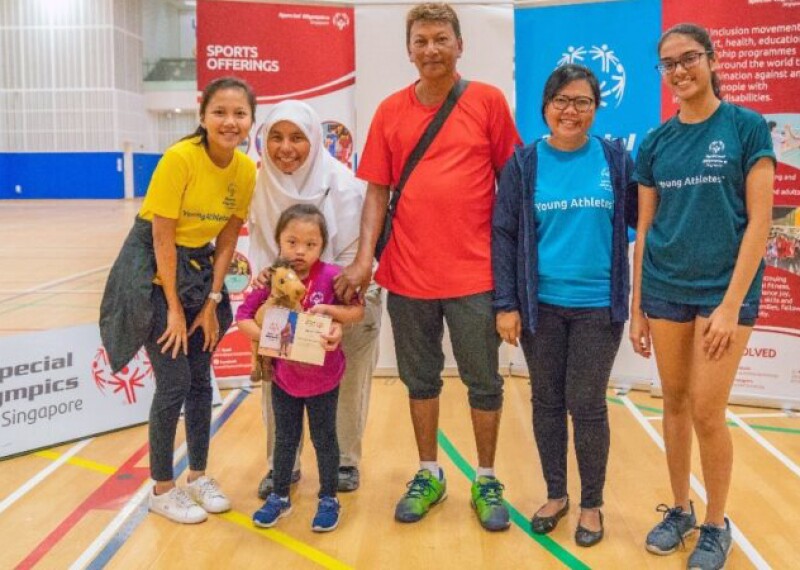
Nestled in the hilly landscape of central Jamaica, the small town of Newport is much different than tourist destinations like Kingston and Montego Bay.

Cecil Hamilton, principal of Bethabara Primary School, wouldn’t want to work anywhere else. The high elevation keeps the air cool, and the sounds of traffic are replaced by songs of local birds. While there aren’t any beach resorts, there are plenty of friendly neighbors happy to share crops from their farms.
As a principal and teacher in the region for over 20 years, Cecil has made this typical rural school his second home. Cecil’s journey as advocate for inclusion, however, has been anything but typical.
Though he’s a Program Leader for Special Olympics Jamaica, Cecil didn’t have experience with people with intellectual disabilities until he was a teacher. Before becoming a principal, he volunteered at a special education school. Cecil admitted he was nervous at first, but his mindset quickly changed.
“After my experience, I felt like I shouldn’t have been timid and that people with intellectual disabilities are as normal as anybody else,” said Cecil.
Cecil felt welcome when he volunteered. “I felt good. It helped me to change my perception about what we think about students with special needs, and the need for inclusion in our own schools throughout Jamaica,” he said.
As principal at his previous school, Cecil advocated for a student with an intellectual disability to enroll. In Jamaica, students with intellectual disabilities typically attend special education schools and there was resistance to the idea.
Special Olympics Jamaica decided to support Cecil’s efforts. They held a clinic to explain the benefits of inclusion, and the student was then accepted and excelled. Inspired by this success, Cecil joined the Special Olympics Jamaica team.
As part of Play Unified: Learn Unified supported by the Stavros Niarchos Foundation (SNF), Cecil created Jamaica’s first network of Unified Schools. Bethabara Primary and four other rural schools partnered with a local special education school to have Unified football competitions. Each school has a team of both boys and girls; 10 athletes (youth with intellectual disabilities) and five partners (youth without intellectual disabilities).

Recently, Cecil organized a ceremony for teams to meet each other and receive jerseys. When the competition starts, it’ll be the first time these students with and without intellectual disabilities will play together.
Cecil wants to spread Unified Schools across central and western Jamaica, since the students have less opportunities than more populated areas. This is especially true for students with intellectual disabilities. Cecil hopes Unified Schools will make families of youth with intellectual disabilities feel closer to their communities.
“It’s emotional to hear their stories. Parents want their children to have an avenue to express themselves. As students they are left behind, and this program gives them the chance to be in the forefront,” he said.
Cecil also believes Unified Schools will benefit students without intellectual disabilities.
“Interacting with people with intellectual disabilities can show students that the world is made up of a lot of different types of people,” said Cecil. “It can also show students a model of how to respect people with other abilities and who are different than you,” he said.

Cecil wants schools in Jamaica to be fully inclusive one day. But for now, he’s looking forward to playing football. “We’re excited to spread the word of Special Olympics. We’re all going to be cheering for each other,” said Cecil.
“I’m also looking forward to putting on my jersey and showing a few football moves,” he added.










